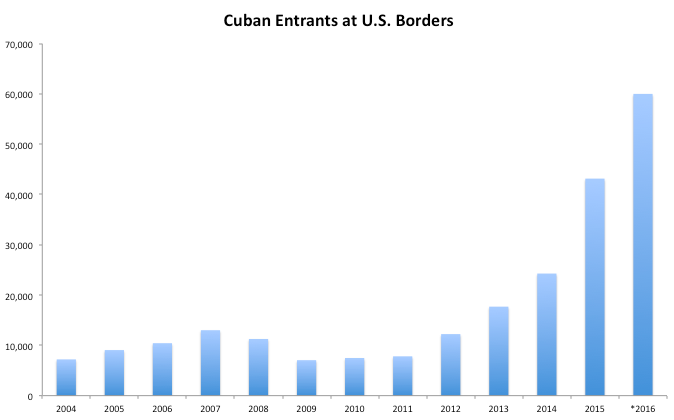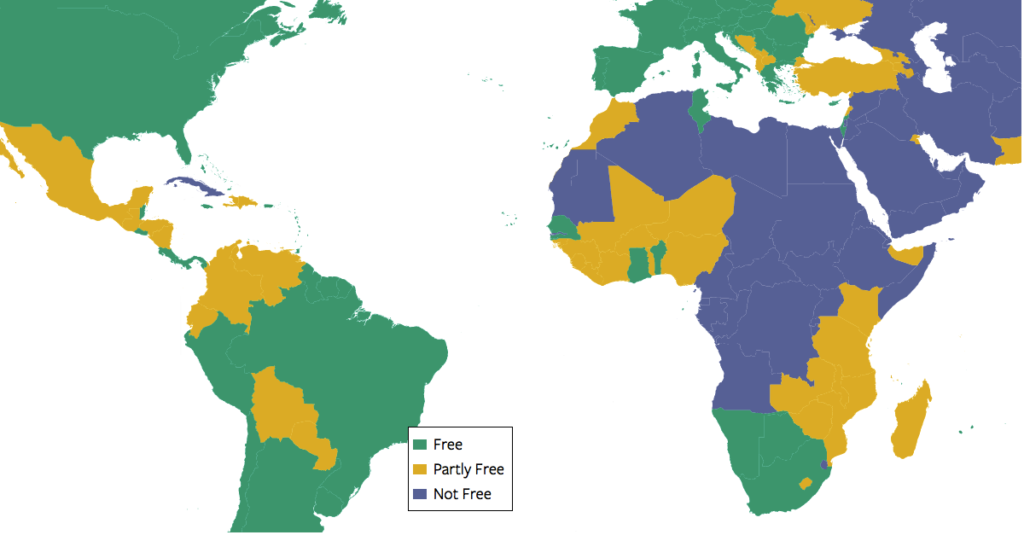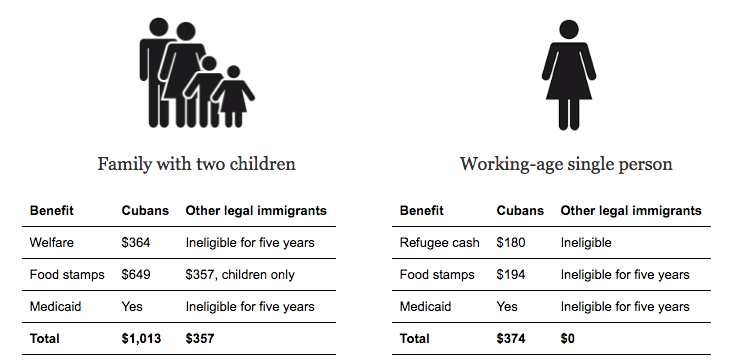More Cubans will arrive at U.S. borders this year than any year in the past few decades. Current law allows them to stay in the United States and receive special access to welfare benefits typically reserved for refugees. As the number of Cubans rapidly increases, Congress should act now to limit welfare eligibility to those Cubans who demonstrate a well-founded fear of persecution.
After the Castro revolution, Congress declared that Cuban immigrants on land in the United States would be treated as refugees and not be sent back to the Castro regime. This policy has led to almost 1.2 million Cuban immigrants coming here and has essentially freed 10 percent of all Cuba’s population from communism – an incredible fact that has benefited this nation almost as much as it has benefited Cubans.
The policy makes sense from the perspective of America’s longstanding opposition to communism. Cuba is the only communist country in the Americas. According to Freedom House, it is the only “unfree” country in the entire hemisphere. As such, Cubans should be given special consideration in the immigration context.
For these reasons, Congress said in 1996 that the policy “is repealed effective only upon a determination by the President… that a democratically elected government in Cuba is in power.” In other words, when the Cuban regime ends, the United States will halt its policy of offering protection to the Cuban people.
Congress, however, went beyond offering Cubans safe haven in America, pending the end of the communist dictatorship. It also offered welfare benefits and refugee assistance that are unavailable to other immigrants. This chart from the Sun-Sentinel nicely summarizes the desperate benefits.
Congress has legitimate reasons to not send Cubans back to the Castros. Yet it should reevaluate the welfare benefits that Cuban immigrants receive. Congress only has a certain amount of money to spend on refugees each year. If it must be spent at all, and it should go to those who have demonstrated a well-founded fear of persecution based on membership in a particular social group, as all other refugees have.
Fortunately, Rep. Carlos Curbelo who represents Florida’s 26th congressional district at the tip of the state introduced legislation (H.R.4247 – Cuban Immigrant Work Opportunity Act) that would require federal agencies to treat Cuban immigrants equally. If they prove a fear of persecution, then they would receive welfare benefits. If not, they would be barred from any benefits for 5 years, which is the standard for all other immigrants
A few years ago, these benefits were not as significant. Yet since President Obama began to open up diplomatic relations with the island, many more Cubans have fled to the United States. From 2011 to 2015, the number of Cubans arriving at U.S. borders grew sevenfold. This year, the total may reach 60,000, which is almost as many Cubans as the entire U.S. Refugee Admissions Program brought in FY 2015.

Although it is reasonable to protect Cubans fleeing communism, the welfare benefits actually work contrary to this goal. The fact that Cubans can arrive at the border and immediately sign up for benefits, or return to Cuba while still drawing on U.S. benefits, undermines the political support for offering a safe haven.
Welfare also provides the false impression that Cubans generally are abusing the welfare state rather than contributing to the economy, when the opposite is true. That is one reason why this change is overwhelmingly popular among Cuban Americans who know that their vibrant community can handle the challenges of integrating new immigrants without government aid.
For these reasons, even liberals are supporting this change. Almost every Florida House Democrat has cosponsored Rep. Curbelo’s bill, and Sen. Bill Nelson of Florida introduced a Senate companion with Sen. Marco Rubio. Other Democrats who have cosponsored did so because they recognize that these benefits prevent the United States from helping refugees from other parts of the world.
The United States has greatly benefited from Cuban immigration, but anyone who is open to Cuban immigrants and to refugees from elsewhere should support restricting benefits for Cubans who are not victims of persecution.

